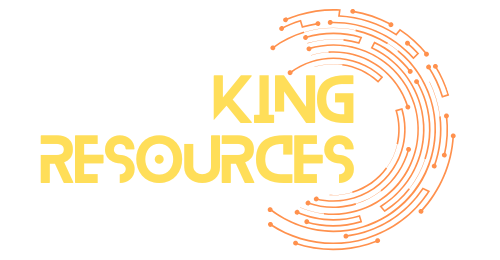In a world where homeownership is often hailed as the ultimate financial goal, renting can feel like the awkward cousin at a family reunion—overlooked but surprisingly savvy. While some might argue that buying a home is the golden ticket to financial stability, renting can actually be a wallet-friendly option that keeps the stress of maintenance and property taxes at bay.
Imagine trading in the unpredictability of a mortgage for the flexibility of a lease. Renting offers not just a roof over your head, but also the freedom to explore new neighborhoods and avoid the burden of long-term commitment. So, is renting ever better financially? Spoiler alert: it just might be the secret weapon in your money-saving arsenal. Let’s dive into the numbers and discover how renting could be the smart choice for today’s savvy spender.
Table of Contents
ToggleThe Financial Perspective on Renting
Renting presents various financial advantages worth considering. The cost structure differs greatly from homeownership, impacting overall financial health.
Long-Term vs. Short-Term Costs
Long-term costs of homeownership often include mortgage payments, property taxes, and maintenance fees. In contrast, renting typically involves a single monthly payment without additional financial burdens like repairs. Short-term financial flexibility exists with renting, as individuals can relocate easily without the high costs associated with selling a home. Renters often budget without the unpredictability of market fluctuations, making financial planning more straightforward. People often find themselves saving on home insurance premiums, further enhancing the financial attractiveness of renting.
Opportunity Costs of Homeownership
Opportunity costs of homeownership encompass more than just immediate expenses. Capital tied up in a down payment could produce higher returns if invested elsewhere. Potential rental income also adds to the opportunity costs, as homeowners miss out on income-generating possibilities. Home maintenance demands time and money that could otherwise foster personal growth or travel. Moving expenses can hinder financial stability, yet renters may leverage lower overhead costs to invest in experiences or education. Overall, these considerations highlight renting as a viable financial option for many individuals.
Benefits of Renting
Renting provides several financial advantages that can significantly impact a person’s lifestyle and budget. These benefits, particularly in flexibility and reduced initial expenses, make renting an appealing option.
Flexibility and Mobility
Flexibility stands out as a key advantage of renting. Renters can relocate easily, whether for job opportunities or personal reasons. Enjoying the freedom to choose new neighborhoods without the burden of selling a property makes life transitions smoother. Lease terms typically range from six months to one year, allowing renters to reassess their living situations regularly. Such adaptability enables individuals to explore different environments, from urban cityscapes to quieter suburbs. In uncertain economic times, renters benefit from this mobility, avoiding the lengthy commitment tied to homeownership.
Lower Upfront Costs
Lower upfront costs are another significant advantage of renting. Prospective renters often pay just the first month’s rent and a security deposit, greatly reducing initial financial outlay. Avoiding hefty down payments and closing costs associated with home buying frees up cash for other expenses. While homeowners face ongoing costs such as property taxes and maintenance fees, renters simply manage a monthly rent payment. This simplicity in budgeting allows individuals to allocate funds toward savings or investments. Moreover, renters typically save on home insurance, which can further decrease their overall financial responsibilities.
Limitations of Renting
Renting presents several limitations that can affect long-term financial health. Many renters face periodic rent increases, impacting their budgeting. Landlords typically adjust rents based on market conditions, occasionally resulting in significant hikes. This unpredictability forces renters to prepare for potential relocations if housing costs exceed their budget.
Lack of equity building represents another critical drawback. Rent payments contribute to a landlord’s wealth rather than creating any ownership benefits for tenants. Consequently, renters miss out on property appreciation, which can significantly boost wealth over time. Homeowners often build equity as their property value rises, while renters simply obtain temporary housing stability. Without equity, the possibility of obtaining a significant financial return from investment diminishes, making long-term financial planning more complex for those who rent.
When Renting Makes Sense
Renting often proves advantageous for those considering short-term living arrangements. For individuals in transitional phases of life, such as students or temporary workers, rental agreements offer flexibility. Typical lease terms range from six months to a year, catering perfectly to transient lifestyles. This arrangement allows for easy relocation without the stress of selling a property. Also, lower upfront costs appeal to those looking for hassle-free options.
Lifestyle and job changes frequently necessitate a shift in housing. Professionals might receive job offers in different cities, creating the need for adaptive living solutions. Renting facilitates this adaptability, as commitment to long-term ownership isn’t required. Many find that renting permits exploration of new neighborhoods without the burdens of a mortgage. It also provides the freedom to reassess living situations in response to evolving career opportunities or personal circumstances. This flexibility can be invaluable in today’s fast-paced, dynamic work environment.
Renting can be a financially sound choice for many individuals. It provides flexibility and lower upfront costs while allowing for easier relocation and predictable budgeting. Although there are challenges such as potential rent increases and the absence of equity building, the benefits often outweigh the drawbacks for those in transitional life stages or seeking financial freedom. Ultimately, understanding personal financial goals and circumstances is key to determining whether renting or homeownership is the right path.









